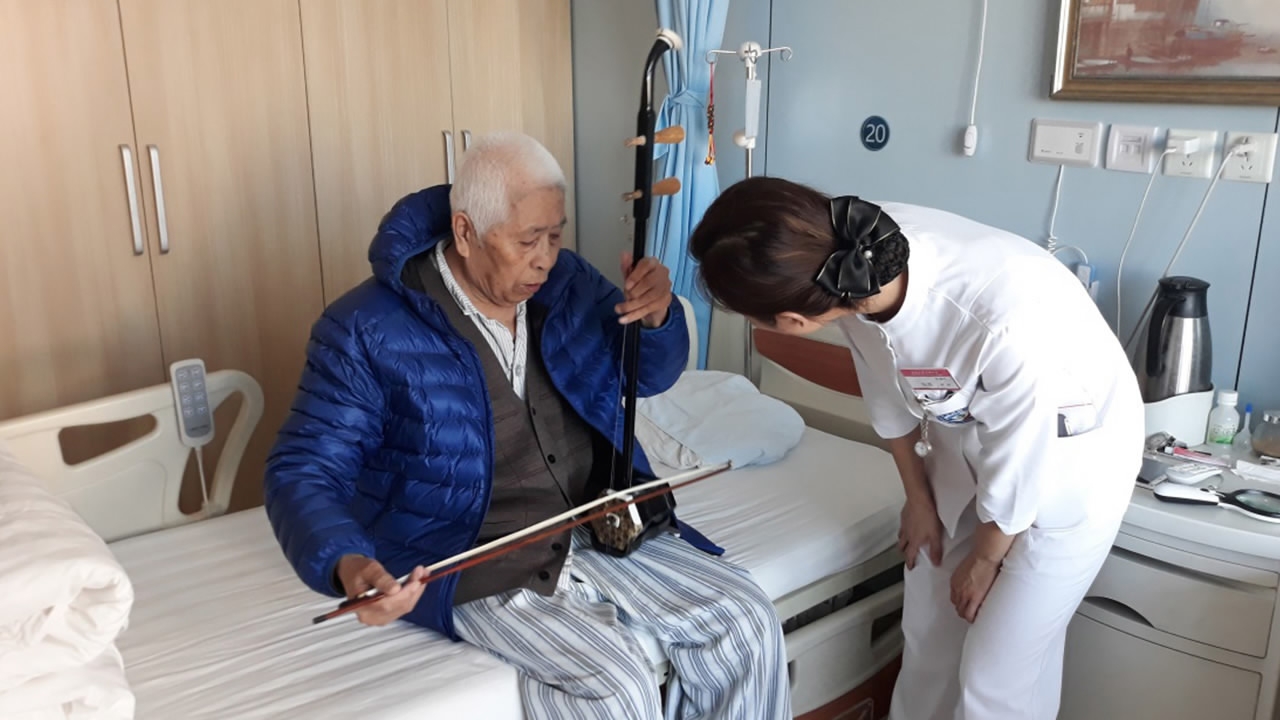
Tech & Sci
23:00, 04-Feb-2018
China’s growing awareness in palliative care
By Wei Lynn Tang

In a country where supposedly (or historically) the mention of death is seen as taboo, it appears that acceptance on palliative care is growing.
In its second publication, the Economist Intelligence Unit ranked China 71st out of 80 countries it surveyed under its 2015 Quality of Death Index – citing, amongst others, limited public awareness and access to palliative care.
Estimates indicate that accessibility to hospice care stands at less than 1 percent in the country.
‘To be free of pain’
Grandpa Li, over 80 years old, used to work for a multinational company, and recalls having a good life with not much suffering. Not until he was hit with prostate gland cancer three years ago.
He now spends his days at the hospice care center at Peking University Shougang Hospital, listening to music on his iPad, shopping online, almost like an average Joe.
“Coming into this world, growing old, falling sick, and dying... they are all part of life. I have already lived until 84, and have no regrets,” says Li, having come to terms that his illness can no longer be cured.
“I am not afraid of dying, I am scared of being in pain. My body was previously tied down with tubes and I was in so much pain I almost wanted to give up on life,” he adds.
Yin Jing, a nurse at the hospice care center says, as there is no curative treatment for Li’s cancer, the approach at the center is to reduce the pain and symptoms of the patient’s disease.
Community engagement
There is a meditation room at the center where volunteers, regardless of religion, congregate twice a week to spread love to the patients.
According to the center, nearby university students also come by to play pretend-grandchildren with the elderly.

Volunteers come by the hospice care center to accompany patients twice a week. /CGTN Photo
Volunteers come by the hospice care center to accompany patients twice a week. /CGTN Photo
Hu Lei, Head Nurse at the hospice care center says most of the cancer patients who come by the center have already accepted their condition.
“But there are also some who are still in a state of anxiety. As such, we adopt an individualized treatment for each patient. Our hope is that under our help, every patient can go through their end-of-life phase as positively as possible,” Hu says.
She adds, palliative care in China is still in its early stage, with the concept and details still being developed.
Still early stages
The hospice care center at Peking University Shougang Hospital is China’s first in a grade-three hospital. It was established in March 2017, as the country released a set of standards for palliative care.
It has 10 nurses and 4 doctors attending to 14 beds.
The amount of beds can be said to be a "symbolic" gesture, considering the reportedly severe lack of supply to cater to the said demand for hospice care.

Hospice Care Center at Peking University Shougang Hospital. /CGTN Photo
Hospice Care Center at Peking University Shougang Hospital. /CGTN Photo
One study shows there were 4.3 million new cancer cases in China in 2015, with more than 2.8 million cancer deaths in the same year. However, reports state there are only an estimated 2,000 beds in Beijing's hospice care centers.
The EIU has listed China as a country with high demand but with poor provisions for palliative care.
But from a cultural standpoint, at least, it appears some parts of the country are slowly warming up to the concept.

SITEMAP
Copyright © 2018 CGTN. Beijing ICP prepared NO.16065310-3
Copyright © 2018 CGTN. Beijing ICP prepared NO.16065310-3